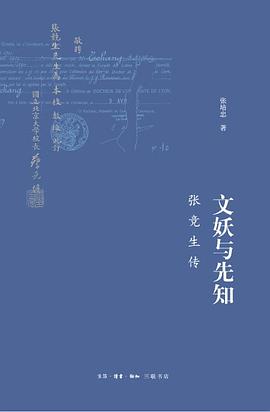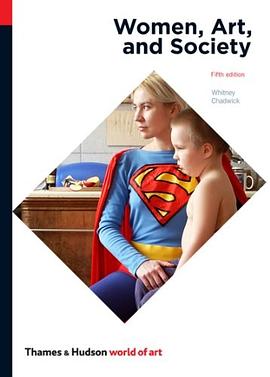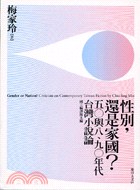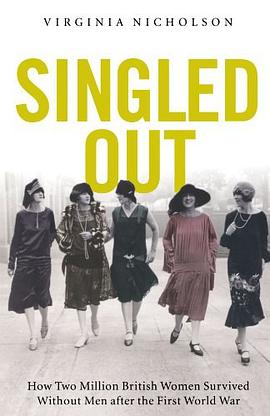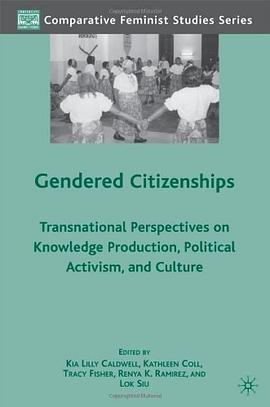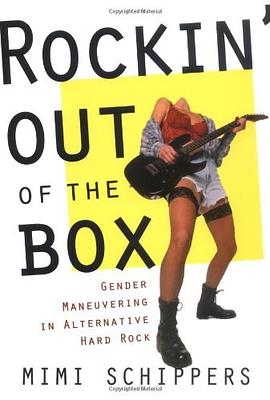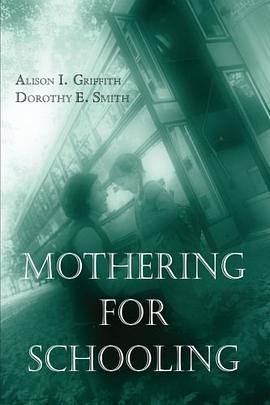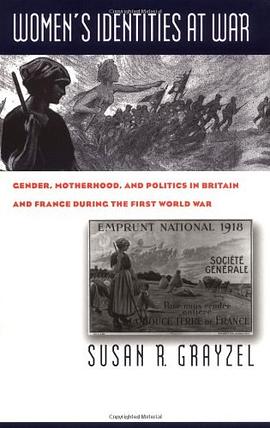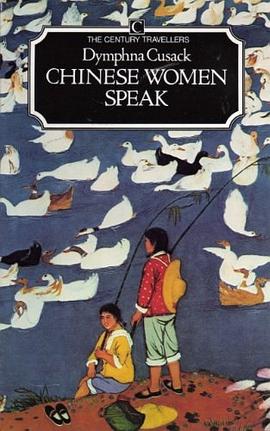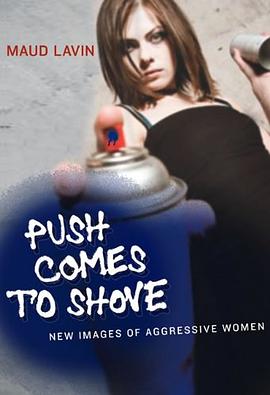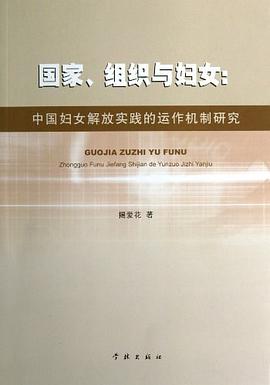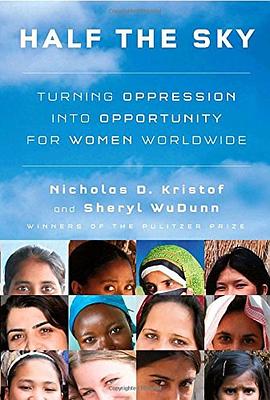
具体描述
From The Washington Post
From The Washington Post's Book World/washingtonpost.com Reviewed by Carolyn See "Half the Sky" is either one of the most important books I have ever reviewed, or it is reportage about a will-o'-the-wisp movement destined to end up in the footnotes of history. Frankly, I'm too stunned by the density of information and the high quality of the prose here to know for sure which it is. You'll have to judge for yourselves. Nicholas D. Kristof and Sheryl WuDunn have been journalists for years. As a married couple, they covered the Tiananmen massacre and were appalled by the dramatic loss of human life. But as they continued their work in developing countries, they discovered that the most dreadful suffering happened in the daily lives of poor, mostly village women. Keep reading! This book isn't a sermon, and neither is this review. These Pulitzer Prize-winning authors see the treatment of women in developing countries as the great story of this century, a moral issue, sure, but also as an economic one. What if by oppressing half their population, countries in Africa, Asia and the Middle East have been shooting themselves in their collective foot? "Women hold up half the sky," the Chinese saying goes, and in fact -- the authors argue -- one of the reasons China has emerged as such an impressive power in the past decades may be because of the "Girl Effect," the millions of girls who have flocked to factories, sparking a revolution in that country. (Yes, those factories are no picnic, but they're better than the alternative: hobbling about on bound feet, as WuDunn's grandmother did.) But in other countries, women may be gang-raped if they leave the house; they're beaten daily, sold into brothels or married off as little children. They're stoned to death in the Middle East for infringements on the family honor or burned to death in India over dowry spats. Acid is thrown in their faces; they endure genital cutting and ghastly fistulas or internal ruptures from botched births. The authors handle this grim material by telling us just a handful of horrible stories at a time, based on their own extensive interviews. Then they leaven these sad tales with profiles of women who have endured rape, beatings or medical afflictions but have managed to found a school or a hospital or a small business that lifted them and those around them out of poverty and despair. These stories are electrifying and have the effect of breaking down this enormous problem into segments the reader can focus on. Suddenly, these horrendous problems begin to seem solvable. There's the story of the lowly Pakistani girl who was raped by men from a higher caste. They expected her to go home and kill herself, as was the custom in her village, but she applied for redress and caught the attention of then-President Pervez Musharraf, who sent her $8,300 in compensation. Instead of being eternally grateful and shutting up, she started a school, learning to read and write along with her students. The attention she brought to the issue of rape in Pakistan sent Musharraf into conniption fits, and she was hounded mercilessly by the government. But Musharraf is gone now, and the school still thrives. Kristof and WuDunn also tell of a girl in Ethiopia who suffered a fistula during her first pregnancy. She made her way to the Addis Ababa Fistula Hospital, got sewn up so she was no longer a "modern-day leper," and then stayed around to make beds and assist the surgeon. Eventually, she learned to do fistula operations herself. She's still learning to read and write, but elite surgeons now learn medical techniques from her. Big governments and big charities -- with the exception of CARE, which has recently focused its attention on girls and women -- are seen only faintly in these pages. The authors tend to focus instead on individual Westerners who had an "aha" moment, from distinguished public health physicians to high school girls who learned something about the situation and felt they had to help. The authors call them "social entrepreneurs" and admire them greatly. But they chide American feminists for being more interested in Title IX sports programs and inappropriate office touching than the plight of their sisters in the developing world. And they acknowledge that women are often implicated in institutionalized oppression, too. Again, this book is not a sermon about victims. Its range is wide, and sometimes it's even funny. In a wonderful, mordantly amusing chapter about big groups trying to impose their views on cultures they don't understand, the authors describe fundamentalist Christians trying as hard as they can to prevent contraception, and secular elites trying as hard as they can to advance it. But, as Kristof and WuDunn remind us, if you're down-and-out in a Congolese jungle, the Christian missionaries will be the ones there to provide you with food and medication. "Half the Sky" is a call to arms, a call for help, a call for contributions, but also a call for volunteers. It asks us to open our eyes to this enormous humanitarian issue. It does so with exquisitely crafted prose and sensationally interesting material. It provides us with a list of individual hospitals, schools and small charities so that we can contribute to, or at least inform ourselves about, this largely unknown world. I really do think this is one of the most important books I have ever reviewed. I may be wrong, but I don't think so.
Copyright 2009, The Washington Post. All Rights Reserved.
From Bookmarks Magazine
Critics, universally inspired by Half the Sky, used their reviews as an opportunity to take up its message. They praised not only Kristof and WuDunn's clear moral stance and explanation of the issues but also the way they combined individual women's stories and practical advice to give the book an optimistic tone. Reviewers pointed out some flaws, particularly the authors' focus on individual action (such as providing a list of hospitals and schools to direct charity to) while neglecting to criticize the policies of Western governments. As more than one reviewer pointed out, Saudi Arabia, a country with one of the worst records of oppressing women, is a U.S. ally. Nevertheless, critics encouraged readers to pick up Half the Sky, which, according to the Seattle Times, "will ignite a grass-roots revolution like the one that eliminated slavery."
作者简介
Nicholas Donabet Kristof is an American journalist, author, op-ed columnist, and a winner of two Pulitzer Prizes. He has written an op-ed column for The New York Times since November 2001 and is widely known for bringing to light human rights abuses in Asia and Africa, such as human trafficking and the Darfur conflict. He has lived on four continents, reported on six, and traveled to 150 countries and all 50 states. According to his blog, during his travels he has had "unpleasant experiences with malaria, wars, an Indonesian mob carrying heads on pikes, and an African airplane crash".
Sheryl WuDunn is a Chinese American business executive, author, and lecturer who was the first Asian-American to win a Pulitzer Prize.
A senior banker focusing on growth companies in technology, new media and the emerging markets, WuDunn also works with double bottom line firms, alternative energy issues, and women entrepreneurs. She has also been a private wealth adviser with Goldman Sachs and was previously a journalist and business executive for The New York Times. She is now senior managing director at Mid-Market Securities [1] , a boutique investment banking firm in New York serving small and medium companies.
At the Times, WuDunn ran coverage of global energy, global markets, foreign technology and foreign industry. She oversaw international business topics ranging from China's economic growth to technology in Japan, from oil and gas in Russia to alternative energy in Brazil. She was also anchor of The New York Times Page One, a nightly program of the next day's stories in the Times. She also worked in the Times's Strategic Planning Department and in the Circulation Department, where she ran the effort to build the next generation of readers for the newspaper. She was one of the few people at The Times who went back and forth between the news and business sides of the organization.
She earlier was a foreign correspondent in The New York Times Beijing and Tokyo bureaus, and speaks Chinese and Japanese. While in Asia, she also reported from other areas, including North Korea, Australia, Burma and the Philippines. WuDunn, recipient of an honorary doctorate from Middlebury College, will be a senior lecturer at Yale University's Jackson Institute for Global Affairs in the fall of 2011. She is a commentator on China and global affairs on television and radio shows, including NPR, Colbert Report and Charlie Rose.
目录信息
读后感
首先要肯定本书的确是一本好书。无论是写作手法、逻辑、故事性上说,都属上层。我对作者收集到如此多的材料,撰写此书,报以非常尊重的态度。 但是我说的可能有些刺耳。 整本书唯一的弱点就是站在了一个西方强权的意识形态上来讲故事。虽然很多章节强调了本地妇女自发的努力...
评分翻译完一天的定量之后我会看一些中文书,言几又的空调很冷,在书店里坐到下午错过一顿午饭的饥饿比起全年中有52%的日子里没有食物来源尼日利亚妇女们的饥饿只有望尘莫及。 这本书使得我在书店这样的公开场合又哭又笑,卢旺达遭遇种族主义者的图西族少女克劳丁与姐姐被关进强奸...
评分看完这本书,心情很沉重。不仅是对外国女性的遭遇,还有对国内日渐恶化歧视女性的现象。早在毛泽东时期妇女能顶半边天,可近些年,很多男性不仅不认同女性在工作方面的能力,还把失业甚至独身归咎于女性,以至于有一种趋势要把女人“赶回家”。我很同意书里说的,女人争取的不...
评分一年一度的毕业季来临,“宁要武大郎,不要穆桂英”这个话题的横空出世引起了不小的关注,终于有媒体开始系统性地报道男女生在就业时遇到的性别歧视了。由于女性在社会分工上约定俗成地被认定为要多负起照顾家庭、生儿育女的责任,企业在选人的时候自然愿意选择将更多精力放在...
用户评价
阅读《Half the Sky》的过程,对我而言,是一场关于同情心与行动力的深刻洗礼。我原本是一个相对内向的人,对于宏大的社会议题,总是习惯于保持一种遥远的观察姿态。我或许会在社交媒体上看到一些令人心痛的新闻,但往往过一阵子,那些情绪就会被生活的琐碎所冲淡。这本书,却以一种极其克制而又充满力量的方式,将那些被忽视的角落拉到了我的眼前。作者并没有采用煽情的手法,而是用冷静的观察和翔实的案例,层层剥开那些隐藏在数字背后的真实生命。我记得其中一段,详细描写了一位妇女如何因为贫困而不得不将自己的孩子送走,那种撕心裂肺的痛苦,即使隔着文字,我也能感受到。然而,书中的重点,并非仅仅是展示苦难,更在于揭示了那些能够带来改变的力量。我尤其被书中关于“女性健康”和“创业支持”的章节所吸引。作者详细介绍了那些致力于改善女性生活状况的组织,她们如何通过提供医疗服务、教育机会和经济支持,帮助女性摆脱贫困和歧视。我读到一位女性,因为得到了小额贷款,最终能够创办自己的小生意,并以此改善了全家人的生活。她的故事,让我看到了赋权的真正意义,它不仅仅是物质上的帮助,更是精神上的鼓励和对自我价值的肯定。这本书让我明白,我们每个人,都可以成为这份改变的一部分,哪怕只是微小的行动,也能汇聚成巨大的力量。它让我从一个被动的旁观者,变成了一个渴望参与改变的行动者。
评分我必须说,《Half the Sky》这本书,它所带来的冲击力,是我始料未及的。我原本以为这会是一本关于苦难的记录,读完之后可能会倍感沉重,甚至有些压抑。然而,恰恰相反,它给我带来的,是一种深刻的希望和行动的动力。作者的叙事方式非常独特,她没有选择直接控诉,也没有用过于激烈的语言去描绘那些令人心痛的现实。相反,她以一种近乎散文的笔触,将那些隐藏在世界各个角落的女性困境,以一种极为细腻和人性化的方式展现出来。我被书中关于“反对性别暴力”和“争取平等机会”的章节深深地打动。我了解到,在许多地方,女性依然面临着严重的歧视和不公,她们的权益得不到保障,她们的声音被忽视。但是,更让我感到振奋的是,作者将大量的篇幅用来讲述那些为改变现状而奋斗的人们。我读到了一些勇敢的女性,她们不畏强权,用自己的行动去挑战不公,去为其他女性争取权利。我尤其被书中关于“女性领导力”的案例所吸引。她讲述了许多女性,如何在最艰难的环境下,凭借自己的智慧和勇气,成为社区的领导者,推动了当地的社会进步。这本书让我明白,女性的力量是不可小觑的,她们不仅仅是苦难的承受者,更是改变的创造者。它让我重新审视了“赋权”的意义,它并非仅仅是物质上的给予,更是对女性内在潜力的激发和对其价值的肯定。
评分《Half the Sky》这本书,它不是那种读完就能立刻放下,或者轻易被遗忘的作品。它更像是一种持续的共鸣,一种不断在脑海中回响的呼唤。我向来对那些能够引发深刻思考的作品情有独钟,而这本书,无疑满足了我对这种“深度”的追求。作者以一种极为冷静且富有洞察力的视角,深入探讨了全球范围内女性所面临的各种不公与困境,从教育的缺失、经济的贫困,到身体的束缚和精神的压迫。但最让我感到震撼的,是她并没有止步于对问题的罗列,而是着重描绘了那些能够带来改变的“种子”。我被书中关于“女性健康”和“儿童保护”的章节所深深吸引。她没有回避那些残酷的事实,例如因缺乏基本医疗知识而导致的高孕产妇死亡率,或者因为贫困而不得不让年幼的孩子承担家庭重担。然而,她并没有让读者感到绝望,而是将大量的篇幅用来讲述那些伸出援手的力量。我读到了一些非营利组织,她们是如何通过提供免费的医疗咨询、技能培训,以及儿童早期教育项目,来点燃那些被忽视的生命。我尤为被书中关于“女性在社区发展中的作用”的案例所打动。她讲述了许多女性,如何凭借自己的智慧和行动,成为社区的骨干,推动了当地的社会进步和经济发展。这本书让我深刻地理解到,赋权并非一句空洞的口号,而是需要具体的行动和持续的努力。它让我看到了,即使在最艰难的环境下,女性依然能够绽放出绚烂的光彩,成为改变的驱动力。
评分这本书,《Half the Sky》,它给我的触动,远比我最初预期的要深沉得多。我一直以来,对社会议题,尤其是那些隐藏在日常生活表象下的不公与苦难,抱有强烈的好奇和一丝难以抑制的忧虑。当我在书店的推荐区域看到它时,封面那种既有力量又带着些许柔和的设计,立刻吸引了我。翻开书页,我并没有被那些骇人的数字或统计数据所淹没,而是立刻被作者那种不动声色的叙事风格所吸引。她没有选择直接控诉,也没有用尖锐的笔调去揭露,而是将目光聚焦在那些身处困境中的女性身上,用一种近乎散文诗的语言,去描绘她们的故事。我惊讶地发现,即便是在最绝望的境地,生命依旧能够绽放出如此顽强的火花。她笔下的人物,她们的苦难是真实的,是触目惊心的,但同时,她们的勇气、她们的智慧、她们在黑暗中摸索着寻找光明的那份坚持,更是让我为之动容。这本书的伟大之处在于,它没有将这些女性描绘成被动的受害者,而是展现了她们内在的力量和不屈的精神。我反复咀嚼着书中的每一个字句,试图去理解,在那些遥远而又似乎近在咫尺的土地上,究竟是怎样的力量,让她们能够在如此艰难的环境中生存下来,甚至去争取一份属于自己的尊严。我记得其中有一个章节,详细讲述了一位年轻女性如何从被迫的婚姻和贫困中挣脱出来,通过自己的努力学习,最终成为一位教师,去帮助更多像她一样被边缘化的女孩。她的故事,不仅仅是个人的奋斗史,更是无数个被压迫女性内心深处渴望自由和尊严的缩影。这本书让我重新审视了“赋权”这个词的真正含义,它不是简单的给予,而是一种激发,一种唤醒,一种让她们认识到自身价值和潜能的过程。它让我明白了,即使身处黑暗,只要心中有光,就能照亮前行的道路。
评分《Half the Sky》这本书,它像是一面镜子,映照出我内心深处对世界的关怀,同时,也给予了我一份前所未有的力量。我一直以来,都对那些关于社会不公和人权议题的书籍抱有强烈的兴趣,但我常常觉得,这些议题太过宏大,个人似乎很难与之产生真正的联系。然而,这本书,却以一种极为贴近个体的方式,将那些遥远的问题拉近到我的身边。作者的叙事方式非常引人入胜,她并没有使用枯燥的统计数据或者学术化的语言,而是通过一个个鲜活的人物故事,将那些被隐藏的女性困境,以一种极为震撼人心的形式展现出来。我被书中关于“儿童早期发展”和“女性创业”的章节所深深吸引。我了解到,在许多发展中国家,女童的教育机会被严重剥夺,她们小小年纪就面临着婚姻和贫困的双重枷锁。但是,更让我感到希望的是,作者将大量的篇幅用来讲述那些为改变现状而努力的组织和个人。我读到了一些非营利组织,她们是如何通过提供学前教育、医疗服务,以及小额贷款,来帮助女性走出困境,实现自我价值。我尤为被书中一位女性企业家的故事所感动。她曾经因为家庭贫困而无法完成学业,但在得到创业支持后,她不仅改善了自己的生活,还带动了当地其他女性的就业。这本书让我深刻地理解到,赋权并非遥不可及的理想,而是可以通过具体的行动来实现的。它让我看到了,即使是微小的善举,也能汇聚成改变的力量,点亮那些被忽视的生命。
评分我拿到《Half the Sky》这本书的时候,并没有抱着特别大的期待,我更习惯于沉浸在那些虚构的、充满想象力的世界里,对于现实题材的书籍,我总觉得会带给我太多的沉重感。然而,这本书,彻底颠覆了我之前所有的顾虑。作者的叙事方式非常特别,她没有采用煽情或者过于直白的语言,而是用一种克制而充满力量的方式,将那些在全球各个角落被压迫和忽视的女性生命,以一种极为细腻和人性化的视角呈现出来。我被书中关于“童婚”和“女性遭受暴力”的章节所深深触动。那些冰冷的事实,在作者的笔下,变得鲜活而充满画面感。我读到了许多年幼的女孩,如何因为贫困和陈旧的观念,被迫过早地承担起成年人的责任,如何在绝望中寻找一丝生机。但是,更让我感到震撼的是,作者并没有让读者沉溺于悲伤,而是将大量的篇幅用来讲述那些积极的力量,那些致力于改变现状的组织和个人。我读到了一些勇敢的女性,她们不畏强权,用自己的行动去挑战不公,去为其他女性争取权利。我尤为被书中关于“女性经济赋权”的案例所打动。她讲述了许多女性,如何通过获得技能培训和创业资金,最终掌握了自己的命运,并为家庭和社会带来了积极的改变。这本书让我深刻地认识到,女性的韧性和力量是无穷的,她们是改变世界的重要力量。它让我明白了,即使身处黑暗,只要心中有希望,就能找到属于自己的光芒。
评分《Half the Sky》这本书,在我看来,是一部关于韧性与希望的史诗。我通常喜欢读一些虚构类的小说,它们能让我逃离现实,沉浸在想象的世界里。但这次,我破例选择了一本非虚构的作品,而这个选择,无疑是我近几年来最明智的决定之一。作者以一种极为人性的视角,深入探讨了全球范围内女性面临的种种困境,从贫困、教育缺失,到暴力和剥削。但最让我惊叹的是,她并没有让读者沉溺于悲伤和无奈之中,而是用一种充满力量的方式,展现了女性在逆境中展现出的惊人韧性。我至今仍然清晰地记得书中关于“童婚”和“强迫劳动”的章节。这些曾经只存在于新闻报道中的冰冷词汇,在作者的笔下,变得生动而充满画面感。她讲述了那些年幼的女孩,是如何被剥夺了受教育的权利,如何被迫承担起不属于她们的责任,如何在绝望中寻找一丝生机。然而,她并没有停留在悲剧的描述,而是着重描绘了那些伸出援手的力量,那些致力于改变现状的非营利组织,以及那些用自己的生命去点燃希望的女性领袖。我尤其被书中一位来自非洲的女性企业家所感动。她从一个身无分文的孤儿,一步步奋斗成为一位成功的商人,并且利用自己的资源去支持当地女性的教育和创业。她的故事,让我看到了改变的力量,以及女性赋权所能带来的深远影响。这本书不仅仅是关于苦难的记录,更是关于希望的宣言。它告诉我们,即使在最艰难的环境下,女性依然能够绽放光芒,成为改变的力量。
评分《Half the Sky》这本书,它就像一块粗糙却蕴含着宝石的矿石,需要你耐心去打磨,去探索,才能发现其中耀眼的光芒。我通常更倾向于那些情节跌宕起伏、充满想象力的故事,对于那些关注现实社会问题的书籍,我常常觉得过于沉重,容易让人感到一种无力感。然而,这本书,彻底打破了我以往的阅读习惯和固有的认知。作者以一种非常独特的方式,将全球范围内女性所面临的严峻挑战,以一种既有深度又不失温度的方式呈现出来。我被书中那些关于“女孩教育”和“女性健康”的章节深深地吸引。她并没有回避那些残酷的事实,比如许多女孩因为贫困和文化习俗而无法获得基础教育,或者因为缺乏基本的医疗保障而饱受疾病的折磨。但是,她并没有让读者沉浸在绝望之中,而是将目光聚焦在那些为改变现状而努力的人们身上。我读到了一些非营利组织的案例,她们是如何通过提供奖学金、建立学校,以及普及健康知识,来点燃那些被剥夺了机会的女孩们的生活。我尤为记得一个关于“创业赋权”的例子。一位女性,曾经因为家庭贫困而失去生活的希望,但在得到小额信贷和技术培训后,她创办了自己的手工艺品作坊,不仅改善了自己和家人的生活,还带动了当地其他女性的就业。这本书让我看到了,即使在最艰难的土壤里,只要给予适当的滋养和支持,女性的力量也能爆发出来,绽放出绚烂的花朵。它让我深刻地理解到,赋权并非空中楼阁,而是实实在在的行动和持续的努力。
评分我拿到《Half the Sky》这本书的时候,其实并没有抱有太高的期望。我承认,我对那些描绘社会现实的书籍,总是抱着一种复杂的态度。一方面,我希望能通过阅读来了解世界的另一面,另一方面,我又害怕那些过于沉重和绝望的现实会让我感到窒息。然而,这本书,彻底颠覆了我之前的认知。它并没有让我感到压抑,反而让我升起了一种难以置信的希望。作者的笔触非常细腻,她并没有直接去列举那些触目惊心的数字,而是通过一个个鲜活的人物故事,将那些被隐藏在角落里的女性困境展现在我们面前。我最深刻的印象是关于“人口贩卖”的部分。我一直以为这只是新闻中偶尔会报道的事件,但通过这本书,我才意识到,这背后牵扯着多么庞大的产业链,以及有多少年轻的生命因此被摧毁。但更让我震撼的是,作者并没有止步于展现苦难,她将大量的篇幅用来讲述那些帮助这些女性走出困境的组织和个人。她们就像黑暗中的一道道光,用自己的行动去温暖那些被遗弃和被伤害的灵魂。我记得其中一个例子,一位曾经被剥削的女性,在得到帮助后,不仅自己获得了新生,还投身于帮助其他受害者的事业。她的转变,让我看到了人性的光辉,也让我相信,即使是最黑暗的土壤,也能够孕育出最美好的花朵。这本书让我明白,改变并非遥不可及,它始于每一个微小的善举,始于每一个敢于发声和行动的人。它让我意识到,我们每个人,都有能力去成为改变的一部分,去为那些需要帮助的人,点亮一盏灯,引他们走出迷雾。
评分我拿到《Half the Sky》这本书的时候,并没有预设太多期待。我通常更喜欢那些情节曲折、充满想象力的虚构故事,而对于社会纪实类的作品,我总觉得会过于沉重,读完之后容易感到一丝无力。然而,这本书,却以一种出乎意料的方式,触动了我内心深处最柔软的部分。作者的笔触极其细腻,她没有用宏大的叙事或者冰冷的统计数字来堆砌,而是将目光聚焦在那些身处困境中的女性个体身上,用一种近乎诗意的语言,去描绘她们的挣扎、她们的勇气、以及她们在绝望中闪烁出的生命之光。我被书中关于“女性在冲突地区所面临的挑战”的部分深深地震撼。那些关于性暴力、强迫婚姻和家庭破裂的故事,即使隔着文字,也能感受到其中的心痛。但是,作者并没有让读者沉溺于悲伤,她将更多的篇幅用来讲述那些积极的力量,那些致力于保护女性、赋权女性的组织和个人。我读到了一些女性领袖,她们如何在最艰难的环境下,挺身而出,为自己的社区争取权益,为其他女性搭建平台。我尤为被书中关于“女性经济赋权”的案例所打动。她讲述了许多女性,如何通过获得技能培训和创业资金,最终掌握了自己的命运,并为家庭和社会带来了积极的改变。这本书让我深刻地认识到,女性的韧性和力量是无穷的,她们是改变世界的重要力量。它让我明白了,即使身处黑暗,只要心中有希望,就能找到属于自己的光芒。
评分整个campaign/movement做得还是很好的
评分看了英文版的,非常好读,中文版肯定会有删节。虽然要庆幸我们生活在一个不需要裹脚可以上学工作自由恋爱的时代,但这世界上还是有很多不平等的存在。去努力吧!
评分整个campaign/movement做得还是很好的
评分中英对照才得见全貌
评分行文让人非常不舒服
相关图书
本站所有内容均为互联网搜索引擎提供的公开搜索信息,本站不存储任何数据与内容,任何内容与数据均与本站无关,如有需要请联系相关搜索引擎包括但不限于百度,google,bing,sogou 等
© 2026 qciss.net All Rights Reserved. 小哈图书下载中心 版权所有



